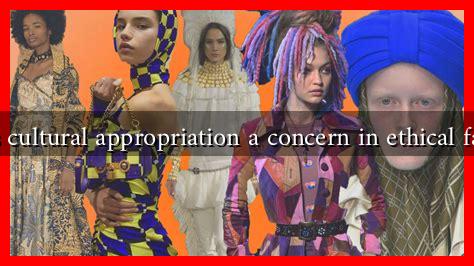-
Table of Contents
Why is Cultural Appropriation a Concern in Ethical Fashion?
Cultural appropriation has become a hot topic in various fields, including art, music, and fashion. In the realm of ethical fashion, it raises significant concerns that merit discussion. As the fashion industry increasingly embraces diversity and sustainability, understanding the implications of cultural appropriation is essential for brands, consumers, and communities alike.
Defining Cultural Appropriation
Cultural appropriation refers to the act of taking or borrowing elements from one culture by members of another culture, often without permission or understanding. This practice can lead to the commodification of cultural symbols, traditions, and practices, stripping them of their original meaning and significance. In the context of fashion, this often manifests in the use of traditional garments, patterns, or motifs without acknowledging their cultural origins.
The Ethical Implications of Cultural Appropriation
In ethical fashion, cultural appropriation raises several ethical concerns:
- Exploitation of Marginalized Cultures: When fashion brands appropriate cultural elements, they often do so without compensating the communities from which these elements originate. This can perpetuate economic disparities and reinforce power imbalances.
- Loss of Cultural Identity: Appropriation can dilute the significance of cultural symbols, leading to a loss of identity for the communities that hold these symbols dear. This is particularly concerning for indigenous and marginalized groups.
- Misrepresentation: Fashion brands may misinterpret or misrepresent cultural elements, leading to stereotypes and misconceptions. This can further perpetuate harmful narratives about the cultures being appropriated.
Case Studies: When Fashion Crossed the Line
Several high-profile incidents have highlighted the issue of cultural appropriation in fashion:
- Victoria’s Secret Fashion Show (2012): The brand faced backlash for featuring a Native American headdress in its runway show. The headdress, a sacred symbol, was worn as a costume, leading to widespread criticism for its disrespectful portrayal.
- Gucci’s “Indigenous” Collection (2019): Gucci released a collection that included items inspired by indigenous cultures. Critics argued that the brand failed to acknowledge the cultural significance of the designs and did not involve the communities in the creative process.
- H&M’s “Coolest Monkey in the Jungle” Controversy (2018): H&M faced severe backlash for an ad featuring a Black child wearing a hoodie with this phrase. While not directly related to fashion design, it highlighted the broader issue of racial insensitivity and cultural appropriation in marketing.
Statistics and Trends in Ethical Fashion
The ethical fashion movement is gaining momentum, with consumers increasingly demanding transparency and accountability from brands. According to a 2021 survey by McKinsey & Company, 67% of consumers consider sustainability when making fashion purchases. However, only 23% of brands have a clear strategy to address cultural appropriation.
Moreover, a report by the Ethical Fashion Forum found that 80% of consumers are more likely to support brands that respect cultural heritage. This indicates a growing awareness and concern regarding cultural appropriation among consumers, pushing brands to rethink their practices.
Moving Towards Cultural Appreciation
To address the concerns surrounding cultural appropriation, the fashion industry must shift towards cultural appreciation. This involves:
- Engaging with Communities: Brands should collaborate with cultural communities to ensure that their designs are respectful and representative.
- Educating Consumers: Raising awareness about the significance of cultural elements can help consumers make informed choices and appreciate the stories behind the designs.
- Implementing Fair Compensation: Brands should consider compensating communities for their cultural contributions, fostering a more equitable relationship.
Conclusion
Cultural appropriation remains a pressing concern in ethical fashion, highlighting the need for sensitivity, respect, and understanding. As the industry evolves, it is crucial for brands and consumers to recognize the importance of cultural heritage and work towards a more inclusive and equitable fashion landscape. By embracing cultural appreciation rather than appropriation, we can celebrate diversity while honoring the rich histories and traditions that shape our world.
For further reading on ethical fashion and cultural appropriation, consider visiting Ethical Fashion Forum.


